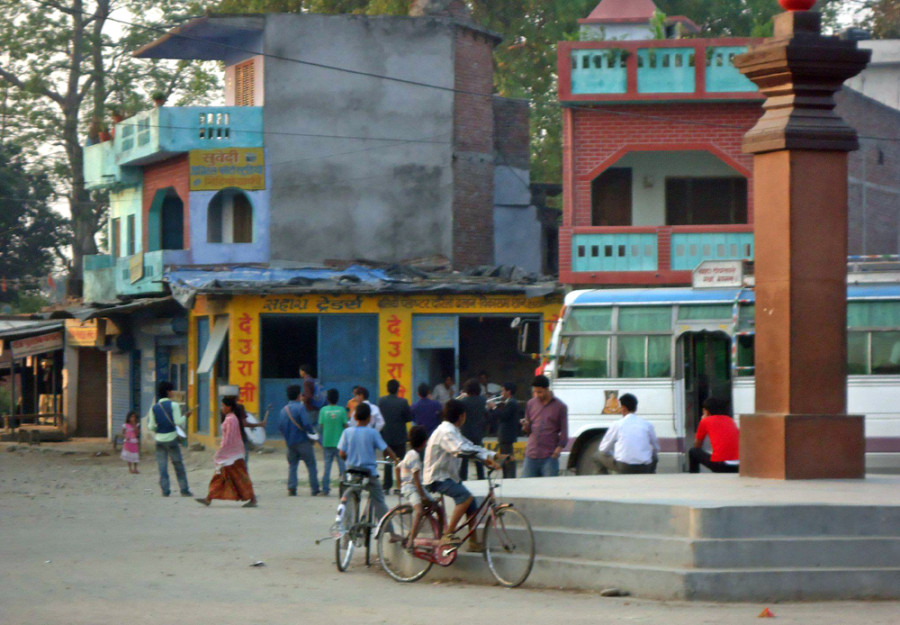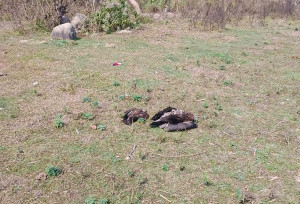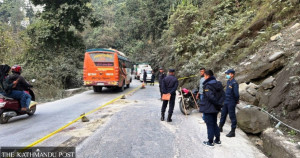Lumbini Province
In Rajapur, police consistently fail to investigate cases involving marginalised communities
Police have refused to look into a number of recent cases involving Tharus and Dalits, despite their families alleging foul play.
Shuvam Dhungana
Fourteen-year-old Trishila Tharu’s body was discovered on November 7 at the home of Chitis Tharu in Bardiya’s Rajapur municipality. She was hanging by the neck.
Trishila’s family, however, did not believe that she had hanged herself. Trishila had been missing for two days, after running away with Chitis on November 5. The family had attempted to coax her to come back and she had told them that she would return home in the evening as it was the last day to submit her application for the ninth grade exams, said Trishala’s father Rajendra Tharu.
It is these circumstances that led the family to suspect foul play.
“The death seemed suspicious as we were informed very late, and when we reached the house, the body was already on the floor,” Narendra Tharu, Trishila’s father, told the Post over the phone from Rajapur. “We tried to file an FIR [first information report] against Chitis and his family, but the police did not accept our complaint, despite speaking to them for hours.”
Trishila’s case is only the latest in a string of incidents where the Rajapur police office has failed to register FIRs and investigate cases involving marginalised communities like Tharus and Dalits. Even though an FIR is simply a request for an investigation, the police, in at least three cases, have refused to seriously pursue suspicious cases of suicide involving minors and members of marginalised communities.
According to the Rajapur Area Police Office, Trishila had run away with Chitis, whom she had known for the last six months, and had committed suicide because her father had scolded her on the phone.
“These kinds of incidents are common in the village. Many girls run away with their lovers and later commit suicide if something goes wrong,” said Inspector Mitra Mani Acharya of the Rajapur Police Station.
Acharya said that the police had refused the family an FIR as their claims were baseless and they didn’t want to arrest an innocent person. They even handed over Trishila’s body to Chitis’ family, on the grounds that the two were married, even though both were minors.
However, after Trishila’s story appeared in the media, the Rajapur police was forced, on November 10, to register the FIR.
“The accused is in custody now and we are investigating the case,” said Deputy Superintendent Biswaraj Khadka, chief of the Rajapur Police Station. “All the evidence collected so far and the autopsy report show that it’s a suicide case.”
However, the case of Pramila Tharu, another 14-year-old from the same area, opens room for doubt. Pramila too died under similar circumstances in October last year. She was found hanging in the forest and the Rajapur police summarily ruled her death a suicide. However, an investigation by The Record found numerous inconsistencies in her death and pointed to a structural failure on the part of the police to treat Pramila’s case with the seriousness it deserved.
Similarly, in June last year, the body of 24-year-old Dipak BK was discovered along the Nepal-India border. On May 21, 2018, BK, an auto driver, had gone to the Indian border with Roshan Sharma and Hari Timalsina. According to Rachana Luhar, BK’s mother, BK had told her that he would be back in a few hours, but he never returned.
“A day later, local police came to inform me that a body had been found and that it was my son,” Luhar told the Post. “It was my son Dipak. Police told me that he died of an overdose.”
Luhar, however, was unconvinced. After seven days, she decided to file an FIR against the two friends who had accompanied BK to the border.
“But no one was ready to write my FIR,” she said. “Police did not accept my FIR for the first four days but after my lawyer met with human rights officers and mediapersons, they finally accepted my FIR.”
Again, it was only after outside pressure that the police took both accused into custody and began their investigations.
However, police officials say that they are not negligent when it comes to investigating any cases.
“When reaching the incident site, what happened can be clearly seen,” said Inspector Acharya. “In the Trishila case, the victim’s family tried to file FIR saying their daughter was kidnapped, raped and murdered but it seemed that they both ran away together.”
The Rajapur police also stressed that they do not refuse any FIRs if the case is genuine.
“It’s not that we do not take FIRs, but the case should look genuine,” said Deputy Superintendent Khadka. “We do not have any intention to save criminals and we are investigating these cases impartially.”
Despite the police’s assurances, research shows that the police tend to treat Tarai communities differently. Madhesis and Tharus are more likely to suffer torture and misbehaviour in police custody, according to a report by the Advocacy Forum, a human rights organisation. Dalits are also likely to suffer more at the hands of the police than ‘upper-caste’ Brahmins, said the report, which was based on a study carried out in prisons in Kathmandu, Banke, Rupandehi, Kaski, Kanchanpur and Morang districts.
“People from marginalised communities, poor backgrounds and women tend to face such situations, where negligence can be seen all the way from providing service to investigating cases,” said Mohan Karna, a human rights lawyer and executive director of the Terai Human Rights Defenders Alliance. “This is not just a problem with the police. Even other government offices mistreat marginalised communities. This kind of behaviour could result in a loss of public trust in the police.”




 8.22°C Kathmandu
8.22°C Kathmandu















